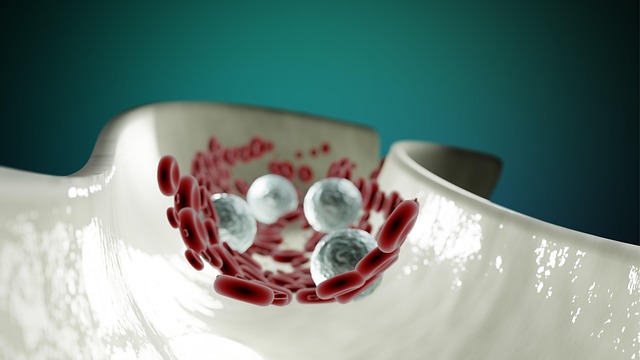The cardiovascular system is a vital network that plays a crucial role in overall health, providing essential oxygen and nutrients to every cell in the body. Maintaining a healthy cardiovascular system is not merely a priority; it’s a lifestyle choice that requires a commitment to healthy nutrition and a balanced daily routine. One way to support this commitment is through understanding the role of vitamins in maintaining cardiovascular health.
Vitamins are not just supplements; they are essential nutrients that the body uses to fuel its functions. When it comes to heart health, certain vitamins have a remarkable impact. For instance, Vitamin K can support the health of blood vessels, while Vitamin C is known for its role in reducing the risk of heart disease. Antioxidants found in Vitamin E can prevent the oxidation of cholesterol, thus protecting against atherosclerosis. Incorporating a variety of these vitamins into your diet through nutrient-rich foods is paramount to enhancing your cardiovascular system.
One of the easiest ways to ensure that your body gets an adequate supply of these vitamins is by focusing on healthy nutrition. A diet rich in fruits, vegetables, whole grains, and lean proteins can supply your body with the necessary vitamins it needs for optimal cardiovascular functioning. For example, dark leafy greens are packed with Vitamin K, while citrus fruits are a fantastic source of Vitamin C. Nuts and seeds, on the other hand, can provide Vitamin E, along with healthy fats that are beneficial for your heart.
Additionally, Omega-3 fatty acids, while not vitamins, play a crucial role in promoting cardiovascular health and are found in fatty fish like salmon or in flaxseeds. These nutrients not only help in lowering cholesterol levels but also play a significant role in reducing inflammation throughout the body. Integrating Omega-3-rich foods into your meals can therefore complement your vitamin intake, providing a holistic approach to supporting your cardiovascular system.
Adopting a holistic strategy for maintaining cardiovascular health extends beyond merely consuming vitamins and healthy foods. A healthy lifestyle also includes regular physical activity, managing stress, and getting an adequate amount of sleep. Engaging in at least 150 minutes of moderate exercise per week can improve cardiovascular endurance and reduce risks associated with heart disease. Activities such as walking, cycling, or swimming can elevate your heart rate and enhance blood circulation, which are essential for a robust cardiovascular system.
Moreover, avoiding tobacco products and limiting alcohol consumption are lifestyle choices that can drastically improve cardiovascular health. Quitting smoking reduces the risk of heart disease significantly, while moderating alcohol intake can help maintain blood pressure levels within a healthy range.
In incorporating vitamin-rich foods into your diet alongside adopting a balanced lifestyle, you’re not just making changes for the moment; you’re investing in your long-term health. Remember that the journey towards a healthier cardiovascular system begins with small, manageable changes. Whether it’s replacing a processed snack with a fruit or opting for a brisk walk instead of a sedentary activity, every choice counts.
Ultimately, nurturing your cardiovascular system through a focus on vitamins, healthy nutrition, and positive lifestyle changes can pave the way for a longer, healthier life. Embracing these practices will not only empower you with improved physical well-being but also provide you with the confidence to lead an active life full of energy and vitality.




